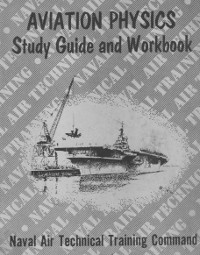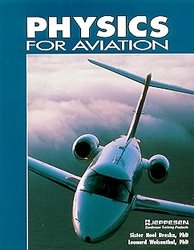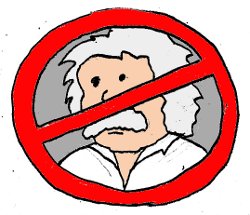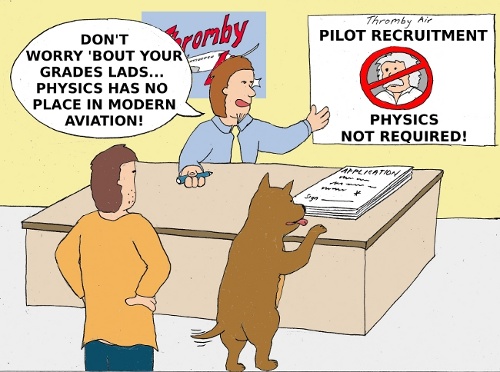Aviation: Physics Not Required!
Historically a pass in high school Maths, Physics and English were prerequisites for a career as a professional pilot. Not any more! These days some airlines and military institutions have removed any requirement for the study of Physics, thereby making it easier for applicants to achieve the required educational standard. Good news? That depends on whether you think Physics is important in aviation.
Technically there is not now, nor has there ever been (to my knowledge), any regulatory requirement for such qualifications for the awarding of a pilot licence, other than a requirement for a fairly rudimentary understanding of the English language. More advanced educational requirements were applied to help select from a large list of applicants and choose people with what was considered a highly relevant knowledge base, but such requirements have been applied by choice by the airline or armed force, rather than being an external requirement of the aviation authorities.
 It is thus left to an airline’s discretion about how, or if, they apply additional educational requirements to their pilot job applicants. As airlines have gradually been reducing pilot pay and eroding working conditions, even to the extent of requiring applicants to pay for their own simulator training, the number of applicants with passes in those three key fields (Maths, English and Physics) fell. The law of supply and demand requires that a high demand for pilot jobs keeps a downwards pressure on pilot salaries — exactly what the airlines want — so the educational qualifications had to be relaxed.
It is thus left to an airline’s discretion about how, or if, they apply additional educational requirements to their pilot job applicants. As airlines have gradually been reducing pilot pay and eroding working conditions, even to the extent of requiring applicants to pay for their own simulator training, the number of applicants with passes in those three key fields (Maths, English and Physics) fell. The law of supply and demand requires that a high demand for pilot jobs keeps a downwards pressure on pilot salaries — exactly what the airlines want — so the educational qualifications had to be relaxed.
It must be said that the Maths required of a working airline pilot is fairly rudimentary, comprising of addition, subtraction, and a good knowledge of your 3-times table (or 4-times table, depending on the glide-ratio of your aircraft). That’s it! No calculus, no trigonometry, no algebra. Sometimes understanding your pay packet printout might need some advanced mathematics, but that’s about it.
Similarly, the English requirements are quite straight forward, certainly for a pilot brought up in an English speaking country. There is no denying that the English language requirements for non-English speakers can present problems (given that English has been determined to be the common language of international aviation), but even that required level of skill is assessed based only on conversational skill level. A study of Shakespeare’s plays is not required.
It therefore makes sense that, if educational requirements need to be reduced to ensure a sufficient number of candidates, surely Maths or English could be sacrificed. But what have they determined to be unnecessary in the modern world of aviation? Physics!
So what exactly is Physics? Let’s look at a dictionary definition:
phys·ics
the science that deals with matter, energy, motion, and force.
That sounds very relevant to aviation to me! Why does a heavy aircraft take more thrust to launch into the sky? Why do large engines take longer to spool-up and provide thrust? How does the wing provide lift? How can an aircraft be stalled at high speed?
 There are innumerable examples of the practical application of Physics in aviation… in fact, it is the “bread and butter” knowledge of any aviator. It would be difficult, in fact, to think of any question in the art of airmanship that did not involve an element of Physics.
There are innumerable examples of the practical application of Physics in aviation… in fact, it is the “bread and butter” knowledge of any aviator. It would be difficult, in fact, to think of any question in the art of airmanship that did not involve an element of Physics.
But is it necessary to have Physics as a formal qualification? Certainly an airline can ask a candidate questions about physics, and there are many aspects of Physics about which the school of life will teach sufficient answers. Indeed, anyone who has fallen over and skinned their knees as a child understands the existence and practical consequence of Gravity.
What does a high school study of Physics, then, give to a candidate that the school of life does not? While I am not a high school teacher I do have an interest in education, and did go through the high school sausage machine myself, so I will make this bold statement:
High school physics teaches the basic laws of physics and instills belief, through study, discussion and hands-on experimentation, that these laws work each and every time (whether you think they will or not).
It is belief in the laws of Physics that is instilled by formal study of the topic. And yet, despite the fundamental importance of Physics in every aspect of aviation, of the three formal high school qualifications that used to be a pre-requisite for a professional aviatior (Maths, Physics and English), it is Physics that has been discarded.
Do the laws of Physics have a role in modern aviation? If the initial reports of what caused the Air France AF447 crash are anything to go by, the pilots failed to apply a fundamental procedure to recover the aircraft from a stall. While doubtless there were other factors involved (such as misleading or contradictory information displayed to the pilots), and while I do not have any knowledge of the pilots’ educational background, the tragedy of an airliner being stalled from 38,000 feet until impact with the sea when a well known stall recovery procedure could have been applied is deeply disturbing.
That accident reminds us that the Laws of Physics allow no exceptions. While the accountants at the airlines may see the benefits in reducing educational requirements for pilot applicants, remember… The Laws of Physics care nothing for your accomplishments in Maths or English!


Recent Comments